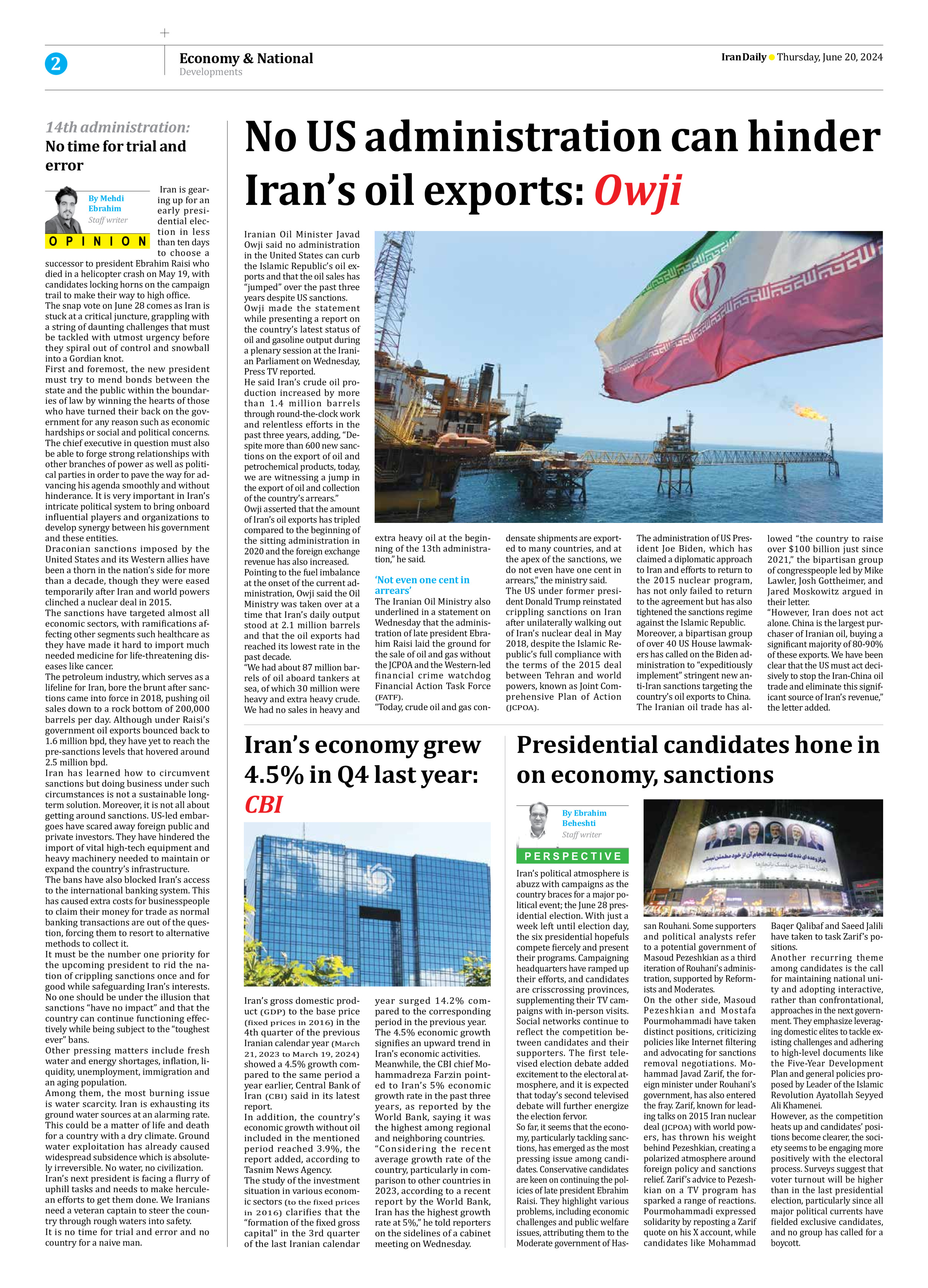
Presidential candidates hone in on economy, sanctions
By Ebrahim Beheshti
Staff writer
Iran’s political atmosphere is abuzz with campaigns as the country braces for a major political event; the June 28 presidential election. With just a week left until election day, the six presidential hopefuls compete fiercely and present their programs. Campaigning headquarters have ramped up their efforts, and candidates are crisscrossing provinces, supplementing their TV campaigns with in-person visits. Social networks continue to reflect the competition between candidates and their supporters. The first televised election debate added excitement to the electoral atmosphere, and it is expected that today’s second televised debate will further energize the election fervor.
So far, it seems that the economy, particularly tackling sanctions, has emerged as the most pressing issue among candidates. Conservative candidates are keen on continuing the policies of late president Ebrahim Raisi. They highlight various problems, including economic challenges and public welfare issues, attributing them to the Moderate government of Hassan Rouhani. Some supporters and political analysts refer to a potential government of Masoud Pezeshkian as a third iteration of Rouhani’s administration, supported by Reformists and Moderates.
On the other side, Masoud Pezeshkian and Mostafa Pourmohammadi have taken distinct positions, criticizing policies like Internet filtering and advocating for sanctions removal negotiations. Mohammad Javad Zarif, the foreign minister under Rouhani’s government, has also entered the fray. Zarif, known for leading talks on 2015 Iran nuclear deal (JCPOA) with world powers, has thrown his weight behind Pezeshkian, creating a polarized atmosphere around foreign policy and sanctions relief. Zarif’s advice to Pezeshkian on a TV program has sparked a range of reactions. Pourmohammadi expressed solidarity by reposting a Zarif quote on his X account, while candidates like Mohammad Baqer Qalibaf and Saeed Jalili have taken to task Zarif’s positions.
Another recurring theme among candidates is the call for maintaining national unity and adopting interactive, rather than confrontational, approaches in the next government. They emphasize leveraging domestic elites to tackle existing challenges and adhering to high-level documents like the Five-Year Development Plan and general policies proposed by Leader of the Islamic Revolution Ayatollah Seyyed Ali Khamenei.
However, as the competition heats up and candidates’ positions become clearer, the society seems to be engaging more positively with the electoral process. Surveys suggest that voter turnout will be higher than in the last presidential election, particularly since all major political currents have fielded exclusive candidates, and no group has called for a boycott.







